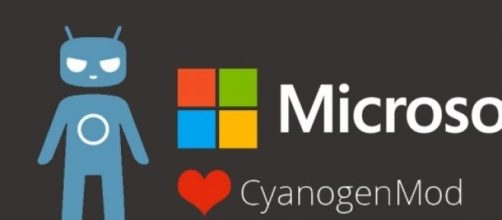Cyanogen, the most successful custom ROM for Android has partnered with Microsoft to integrate some custom apps in upcoming Windows Phone version. So far, Cyanogen has pulled a massive amount of tech users with its light, aesthetic and open OS based on official android releases. This partnership is a step towards a Cyanogen's goal of becoming an independent OS.
The Deal
Recent developments in Cyanogen's strategy had given slight hints that it is looking to distance itself from Android and trying to develop an independent OS. This deal with Microsoft has made this notion conspicuous.
This move could cost them heftily as native Google services like Gmail, Google Maps, and App market are bound to be lost in the independent OS. But the company seems to have found a new ally to make up for it. The strategic partnership between Cyanogen and Microsoft includes integrating WP services like Bing, One Drive, One note and Outlook in upcoming Cyanogen OS.
"People around the world use Cyanogen's operating system and popular Microsoft services to engage with what matters most to them on their mobile devices," said Kirt McMaster Cofounder and CEO of Cyanogen Inc.
Possible Reasons and effects
A non-Google Android fork limits apps using original services like Google's push notification.
This seems to be a primary hurdle for Cyanogen to develop a full-fledged ecosystem. Looking at Windows phones growth chart, it's clear that it never took off well in any of the many recent leaps. This deal also helps Cyanogen to leverage its following and to be known as an Independent OS than just a custom ROM OS. Tech communities are hoping to see an aesthetically improved OS with better performing Cyanogen.
Microsoft going head-on
In the last six months, Microsoft has aggressively expanded its user base by bundling windows platform with latest Dell and Samsung devices. It has also made its flagship product MS Office available on iOS for free of cost. This 'Horizontal' approach has brought MS products in direct competition with the same OS. This strategy has enabled it to acquire large funds as 'Patent Royalties' from all Android OEM's (Original Equipment Manufacturer).

